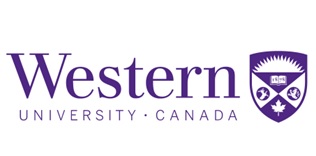Working with deceased donors' family members to improve the donation process experience

- Logistics
- In person
- Anticipated time commitment
- 20-25 hours over a 12-month period
- Application deadline
- Type of Organ
- Opportunity Type
- Research Partner
- Theme
- T1 - Culture of Donation, T2 - Practices for Donation
There are more people who need a life-saving organ than there are donated organs. To increase the quality and number of organs available for transplant from deceased organ donors, physicians use ‘donor interventions.’
Donor interventions involve things like administering drugs to donors to improve the condition of their organs for the benefit of organ recipients. However, there is limited evidence that these interventions are safe and effective; some may even do more harm than good. To improve donation practices, large trials of donor interventions are needed, but conducting these trials in deceased donation is challenging.
Our long-term goal is to produce guidance on the conduct of randomized trials of donor interventions. As a first step in our program of research, this project addresses important preliminary research questions to ground guideline development.
As part of this project, we aim to partner with deceased donors’ family members to identify key markers of a high-quality donation process, enabling us to later derive outcome measures aimed at improving donation processes for families. As a critical step on the path to transformative research, this project will benefit donors who want to maximize their legacy, families who want to see successful donation, and recipients who will benefit from improved organs.
Experience required
Are you a deceased donor's family member? Would you like to help improve the deceased organ donation experience for other families?
A group of researchers at Western University is assembling a team of ethicists, doctors, scientists, and deceased donors’ family members to co-create guidelines for the ethical design and conduct of research studies in deceased organ donation.
Only by knowing what a quality donation process should look like can doctors improve the experience for families. You could provide this critical information due to your lived experience as a deceased donor’s family member.
Over a 12-month period, team members, including donor family partners like you, will share their experiences in a series of in-person and virtual participatory workshops. Together the team will derive a set of satisfaction indicators that can be used to improve the donation process for donor family members in future.
Potential roles for PFD Partners
Participants in this initiative will be formally affiliated with the Canadian Donation and Transplantation Research Program as patient-family-donor partners. As full members of the research team, contributors to this project will meaningfully advance the goals of the organ donation system by ensuring that giving the gift of life can benefit not only the legacy of donors and the health of transplant recipients, but also donor family members.
Reimbursement
Donor family partners will participate in 3-5 in-person and virtual participatory workshops over a 12-month period. They will also have the opportunity to co-create this project's outputs as co-authors on all publications and reports.
Partners will receive a 50/hr honorarium in recognition of their contributions to the team, as well as travel expenses for in-person meetings.
How to get in touch
- Name
- Manuel Escoto
- Job title
- CDTRP Patient, Family, Donor Partnerships & Education Manager
- mescoto@cdtrp.ca
The First Workshop When: December 6, from 8am – 10am Where: CDTRP Annual Scientific Meeting - Montreal Workshop goal: To begin exploring how to improve the donation process for donor families. Attendees will have the opportunity to share their stories, offer ideas, and propose solutions to key challenges.
Expenses: Costs of travel and attendance will be covered by the research team. If you are interested in making a difference through this important initiative, please get in touch. A limited number of spaces are available for our first in-person participatory workshop, so don't hesitate to apply!
